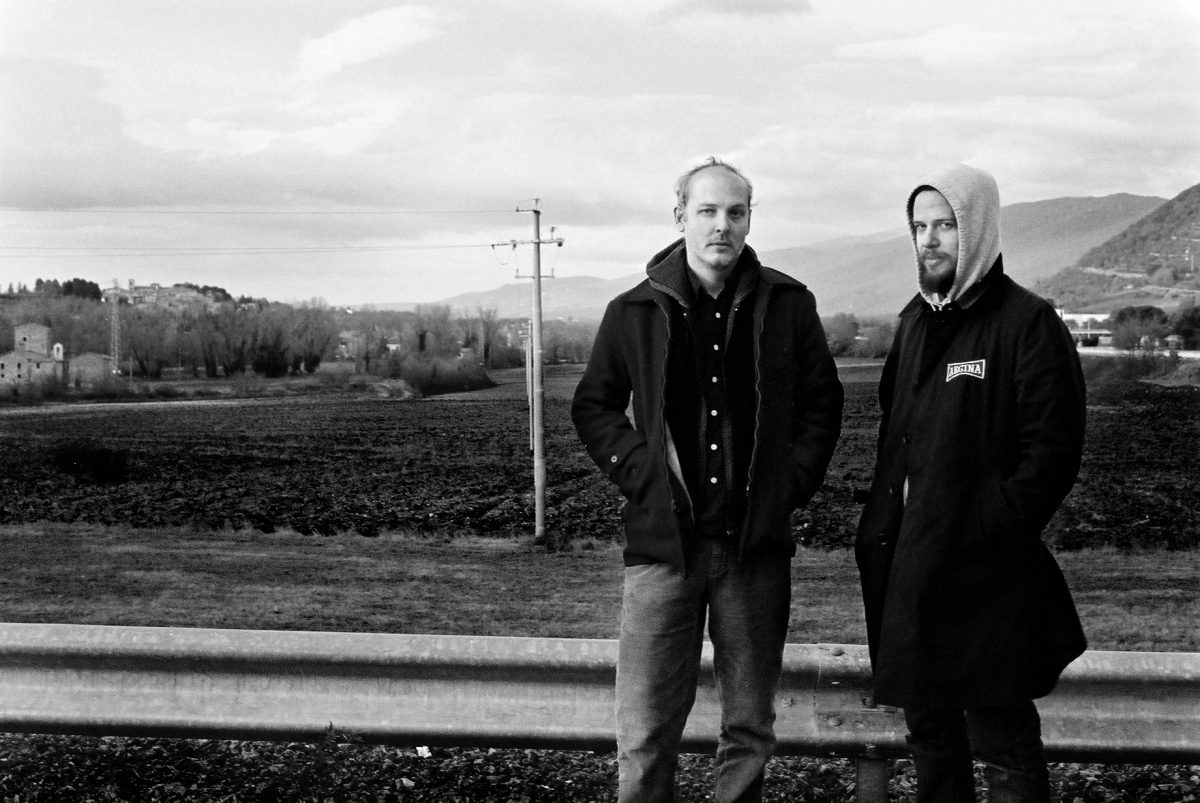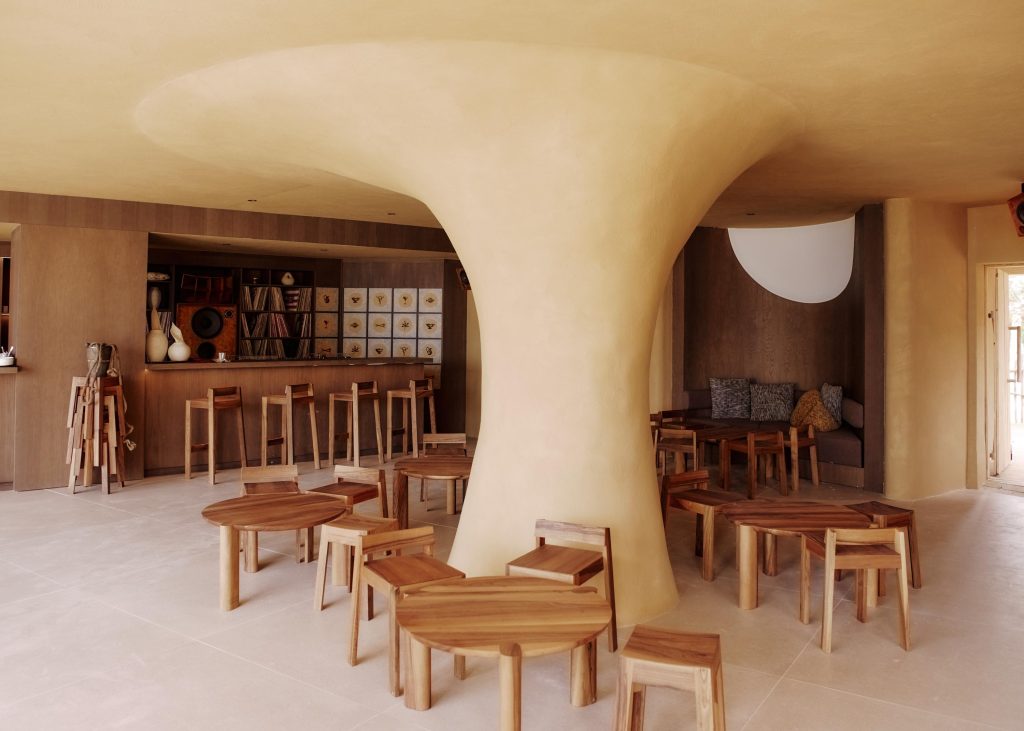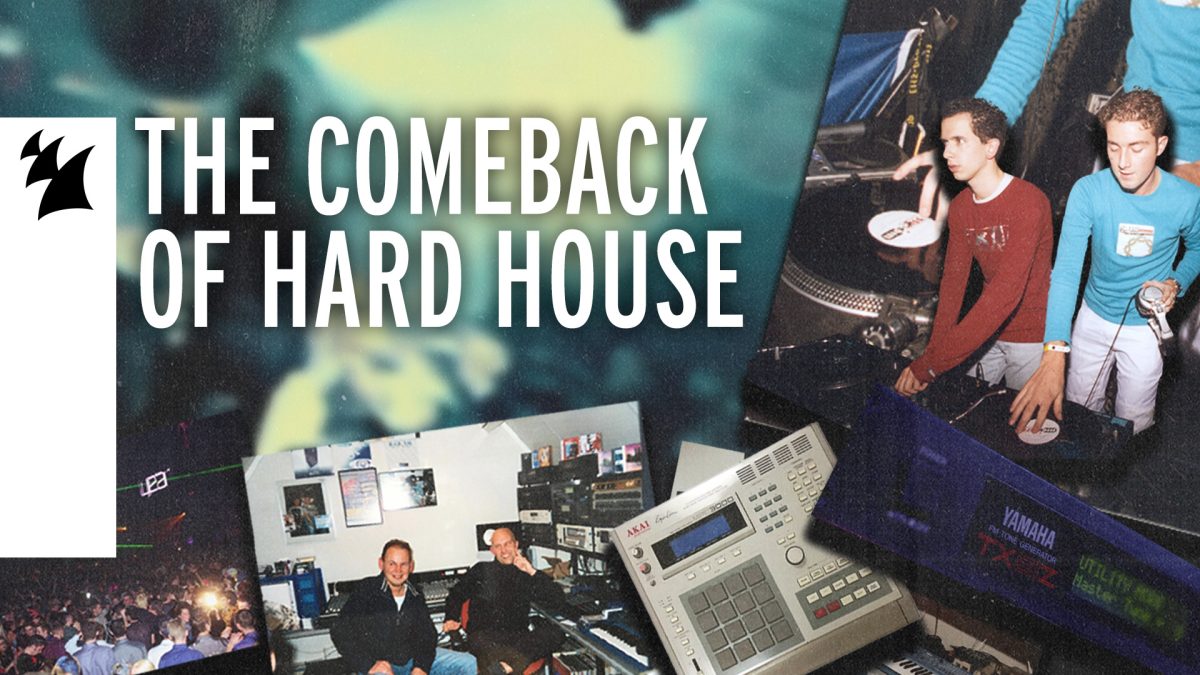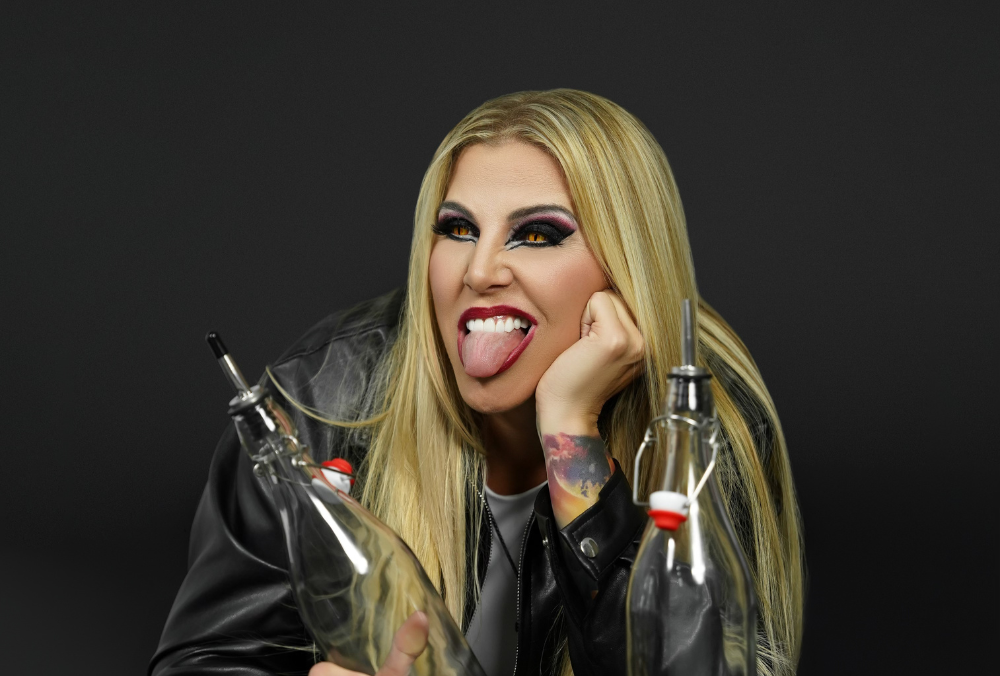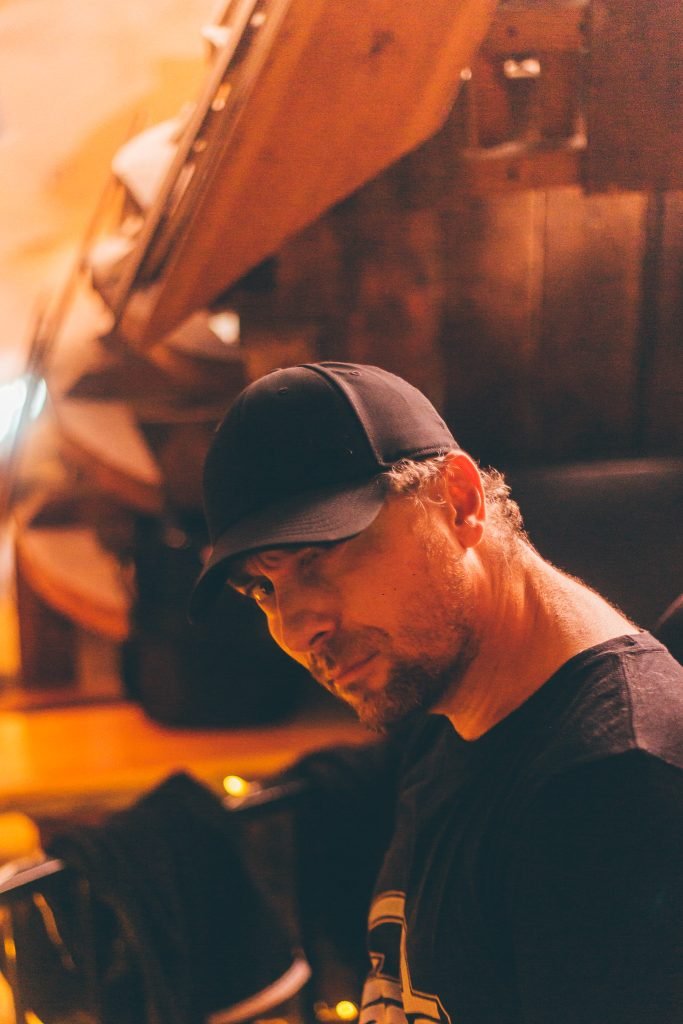
Internationally acclaimed DJ and producer, Luke Brancaccio has enjoyed a dynamic career spanning multiple music genres. Initially making his mark as the frontman of the British band “Suicide Sports Club” and achieving chart success as part of the production duo Brancaccio & Aisher, he has since graced the covers of DJ Magazine and headlined events around the world. Currently, as part of the trio Tokyo Fan Club, Luke has become a staple at Bedrock, boasting more releases there than any other artist. In recent years, he has signed with prestigious labels like Renaissance, Mobilee, Circus, Crosstown Rebels, Lost & Found, Sudbeat, and Selador. His cutting-edge tracks consistently top charts, earning widespread critical acclaim and leading to collaborations with iconic figures like Nick Muir and John Digweed.
We caught up with Luke during our 10th Birthday celebrations along with an exclusive live recording of his recent gig with Aidan Doherty with Warm Up Londonunderground raves in London.
Congratulations on joining us with Decoded Magazine’s 10th birthday. Could you share some of the most memorable moments from this incredible journey with us?
The journey with Decoded Magazine has been incredible, full of standout moments that have shaped my experience. Interviewing artists like Booka Shade and travelling to places like Amsterdam and Ibiza to cover top clubs and events have been real highlights. My former residency with Pioneer DJ Radio and Decoded, where I had the opportunity to host some of the biggest names in the industry each week on the radio was also an unforgettable chapter. I’ve enjoyed every moment and am grateful for all the experiences along the way.
Let’s talk about your former group, Suicide Sports Club, which was part of a new sound in the 90s, signed to Bedrock, playing major festivals, and travelling the world, what gave you and Bruce Aisher inspiration and creative process behind the formation of the Suicide Sports Club?
Wow, that brings back memories, a lot has changed since then and it’s not something I focus on nowadays, however, my days at Suicide Sports Club came from a need to push past the usual limits and create something raw yet emotionally charged. From a personal high of making the cover of DJ Mag (I can’t remember what year, way too many fun nights I can’t ever repeat), we pushed for a sound that felt intense, almost like a release, while blending darker tones and different genres. It’s music that speaks to both personal experiences and broader, shared emotions.
At first, we couldn’t even get into Bedrock, twice from memory (Heaven) once we got in though, we spent our nights listening to Digweed, Tilt, Tony de Vit and Slacker. We’d finish up and go home, thinking, how do we sound like them, how did they even make that sound, we were so inspired and threw ourselves into music. At the time, I was DJing at Sunflowers (The Garden Club) and had a chance meeting with Gertz the Engineer of Faithless, who asked us to come into the studio, I think we were paying something like £700 a week, back in the 90’s that was a lot of money (it probably still is) we were now sitting opposite Sister Bliss, Rollo, Maxi Jazz to Grace Jones and Gwen Stefani, we were so fresh, it was a baptism of fire to say the least.
I remember when were warming up for Radiohead, Block Party & Beck at V Festival, I had no idea what was going on, it was quite a hedonistic time, I can’t describe the feeling of sharing the stage and playing to massive crowds, I even lost my shoe, I had to borrow a flip flop from some random next to the stage, some emo kid (whatever happened to them?) It was a rock n roll time, brilliant memories. One of the highlights was the guitarist from The Cure, Porl Thompson heading up on our song “My Black Dog”. quite surreal to be honest, listening back recently, you can pick his influence of The Cure in the track.
All good parties come to an end though, people grow, people explore new sounds, we had a brilliant run, we are still all good friends and look back and laugh at some of the shit we got up to. We were so young, that we thought we knew it all. Still, honestly, I wish the industry was as mature as it is now and had close friends and support as I do now. Still, we were part of a new sound, Indie Electronic, sharing the billing of acts like Daft Punk, Basement Jaxx, Chemical Brothers through to Underworld, always exploring new music, we didn’t know what we were a part of back then, but it was interesting to hear that sound come back again, now living in Hackney, I’m surrounded. Still, such great new acts, it’s everywhere!
Ok, you pursued a career as a stand-alone DJ for many years afterwards, we hear on good advice, that you actually ran away to LA at one point. Is it true you took a bag of records with you and by chance bumped into Jon Phillipe Abience (famed from Give Me Love) on Melrose Boulevard (LA) which ended up cementing your DJ career (and even honed the skills you have today) How was it leaving stage to the decks? No names, but that must have been an incredible time, what can you tell us about those days?
Hahah where does one start, back then, I was booked as “A British DJ” not even my name, I’m sure most of them hadn’t met a Brit back then. I didn’t even have my own headphones, I borrowed a pair from Jon and each week, dug through crates of records, playing at nights I can barely remember, from warehouses through to underground clubs, it was an incredible time.
After 3 and a half years, I had enough (or Immigration was on my case) but I decided to head back to the UK. With my family first in mind, it was the right time and was the first of me taking time away from the industry, something that consumed me since my teens, it was a transition that was difficult and what came next, years later, it took to me now.
A Hiatus from the scene, interspersed with releases with various artists, labels and gigs, we arrive at your recent live concept, Tokyo Fan Club, which gained quite a following after being signed to Bedrock Records. What was the initial idea behind this project, how difficult was it putting it together during Covid and how has it evolved over the years?
Tokyo Fan Club started as a concept, focused on capturing the essence of underground and leftfield music. Covid pushed us to rethink how we work and find new ways to create remotely. Over time, the project has evolved into something bigger than I expected, yet still firmly rooted in the underground, especially after signing with Bedrock Records. The pandemic gave us the chance to explore more experimental sounds and narratives, making the music deeper and more introspective. There’s a lot more in store for this project.
Working with your wife Kiki must bring a unique dynamic to your music. How does this partnership influence your creative process and the work you produce together?
Working with Kiki is truly special. There’s an intuitive understanding that comes from knowing someone so well, both personally and creatively. We balance each other out—where I might be more conceptual or abstract, she brings in a fresh perspective that grounds the music in something emotionally resonant. It’s like a dialogue through sound, and that dynamic adds layers to the work we produce together.
You’ve collaborated with various artists, including Gai Barone. What was it like working with Gai, and what have you taken away from that experience?
Working with Gai is truly inspiring. He brings such a deep emotional depth to everything he touches. The collaboration taught me a lot about patience and attention to detail. Gai is a master of layering, and seeing his process up close really expanded my own creative approach. I think what stood out the most was how he could create such complex sound structures while still maintaining a soulful, human element to the music.
Being a solo artist brings its own set of challenges and rewards. What does it mean to you to perform and produce music solo, compared to working within a group or duo?
Performing and producing solo is a different beast. It’s a more introspective process—you’re not bouncing ideas off anyone else, so it can feel more personal, but also more demanding. You have to push yourself harder because there’s no one else to rely on creatively. But at the same time, it offers a sense of freedom. You can follow your own vision without compromise, which can be incredibly rewarding. With a group or duo, it’s about finding that perfect balance between voices.
Looking back at your career, do you have a favourite track you ever produced, and what makes it stand out to you?
It’s tough to choose just one, but “Wake Up,” the track I did with Simon Berry from Platipus Records, stands out. Released on Yousef’s Circus Recordings, it represents a specific moment for me both personally and sonically. The process in the studio wasn’t easy, but the struggle made it all the more rewarding. The final result still resonates with me, and seeing how it connects with listeners makes it even more meaningful.
The music world is always evolving. How do you stay current with trends, and what are you most excited about for the future of electronic music?
Staying current is about always being open to new sounds and not getting stuck in one place. I make it a point to explore different genres, attend festivals, and see what’s happening on the ground. Collaborating with other artists who bring fresh ideas is key—it keeps things interesting and pushes me to step outside my own creative habits.
Who would you recommend we keep an eye on that is pushing the boundaries of music?
One name to watch right now is Tape Tomorrow. They’re pushing boundaries in a way that feels genuinely fresh, blending electronic and experimental sounds into something that’s both innovative and unexpected. I’ve had the chance to work closely with him recently, and his approach to music is truly next-level. He’s got a rare talent for weaving together complex textures while keeping things grounded and engaging. We’ve got some exciting plans to collaborate further when the timing lines up—definitely someone to keep on your radar.
As Decoded Magazine celebrates its 10th birthday, what advice would you give to emerging artists who aspire to have a long-lasting impact on the music scene?
Don’t be afraid to be yourself, and don’t chase trends. It’s important to understand where the scene is headed, but ultimately, your authenticity is what will make you stand out. Find your own voice, and keep pushing boundaries—not just in music, but in how you connect with your audience. Longevity comes from building something that resonates deeply with people, not just following what’s popular at the moment.
Related
Discover more from Decoded Magazine
Subscribe to get the latest posts sent to your email.

